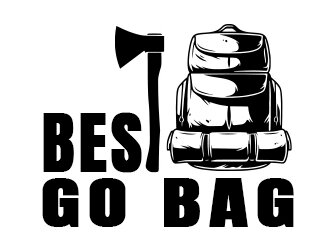We are very fortunate to live during a time in history when we can simply turn a faucet handle and have cold or hot water come out.
Our ancestors certainly did not have this convenience. Even as recently as the late 1800s, people were building upstairs bathrooms on stilts. They didn’t trust this new-fangled thing called plumbing.
And sometimes we forget how dependent we are on water. We use it for drinking, showering, bathing, washing our hands and brushing our teeth. Not to mention cooking, washing clothes and cleaning our homes.
With everything that’s been happening in America and around the world over the past 18 months, it’s never been more important to prepare. Storing clean water for a variety of needs is an essential component of that preparation.
How much should I store?
So, we all agree it’s a good idea to store plenty of clean water. But how much to store is a legitimate question.
The answer depends on a variety of factors. Including how many people are in your household. And how much storage space you have. As well as the type of climate where you live. And how long you’d like your supply to last.
The more water you have, the more prepared you’ll be. But most people don’t have space to store sufficient water for the long term.
So your preparation plans should also include where to source and how to collect water. Plus, how to purify it.
1.5 gallons a day should do the trick
The general rule of thumb is to store at least one gallon of drinking water per day per person. You should also have another half gallon or so per person per day for sanitary and cleaning purposes.
Even if you don’t normally drink a gallon of water per day, it will be good to have in an emergency. A crisis could involve being more active than normal. So, more is better. Especially if you have a garden.
You should aim for at least a three-day supply of water. But that’s a bare minimum. We’ve seen far too often in recent years that many emergencies go on for a week or more.
Even if you have access to water, such as a stream or nearby lake, you still need to consider a water storage program. Many types of disasters could cause that water source to become contaminated.
Where should I store it?
Some people are fortunate enough to have a basement or large garage in which they can dedicate space for emergency water storage. Others live in small apartments and don’t have the extra space.
Still, if you are creative, you should be able to find ways to store enough water to last your family in an emergency.
In all cases, you want to be sure to store water away from light and heat. A cool, dark space is best. You also want to be mindful of the potential for containers to leak. Don’t store bottles where a leak could damage wood floors or cause other problems.
Storing water outside is not ideal. As mentioned, you want to avoid extreme temperatures and sunlight. If it is your only option, aim for storage in a carport or other covered area where you can at least avoid direct sunlight.
Containers are key
For those with limited space, the types of containers you choose are especially important. Take advantage of space under beds or consider dedicating part of an extra closet to storage. Some people raise their beds to add extra storage space.
If you have more space, blue, polyethylene plastic storage barrels for large quantities of water are popular. They’ll also help differentiate your water from other containers.
Clean the containers. Before filling them with water, dilute one teaspoon of bleach in a gallon of water and wash the containers thoroughly. Including insides, lips and lids.
Place labels on your containers. Clearly mark the date you filled the container on each label, as well as the source (filtered water, tap water, ground water, etc.).
Water storage tips
If you store water in your basement or other cool, dark place, make sure to follow these suggestions.
- Store various sizes of water containers. Water is heavy. If all you have is large containers, not everyone in your family may be able to comfortably handle them.
- Keep your water away from chemicals. And only use containers with airtight lids.
- Don’t let your water freeze. Frozen water could break its containers. Plus, you might not have time to wait until it thaws before you need to drink it.
- Filter your water before you store it. At the very least, have a water-filtering plan in place in case your water becomes contaminated.
- Replace your supply regularly. Yes, it could last for a long time if stored properly. But replacing it at least once a year is a good idea.
Boiling water helps
Something we’ve all seen in the news many times is a boil order. Even after an emergency has occurred and been dealt with, tap water is often not immediately safe to drink.
So, city officials tell residents to boil their water before using it to drink, bathe, cook or clean.
Now, boiling water does not get rid of all contaminants. But it is effective against bacteria and some other organisms. And the taste of boiled water will improve if it is first poured back and forth between two clean containers.
If your power is out, however, you may not be able to boil water. This is one of the reasons you need to have an alternative way to heat water.
None of us can live for long without water. Make your emergency water storage a priority while there is still time.

